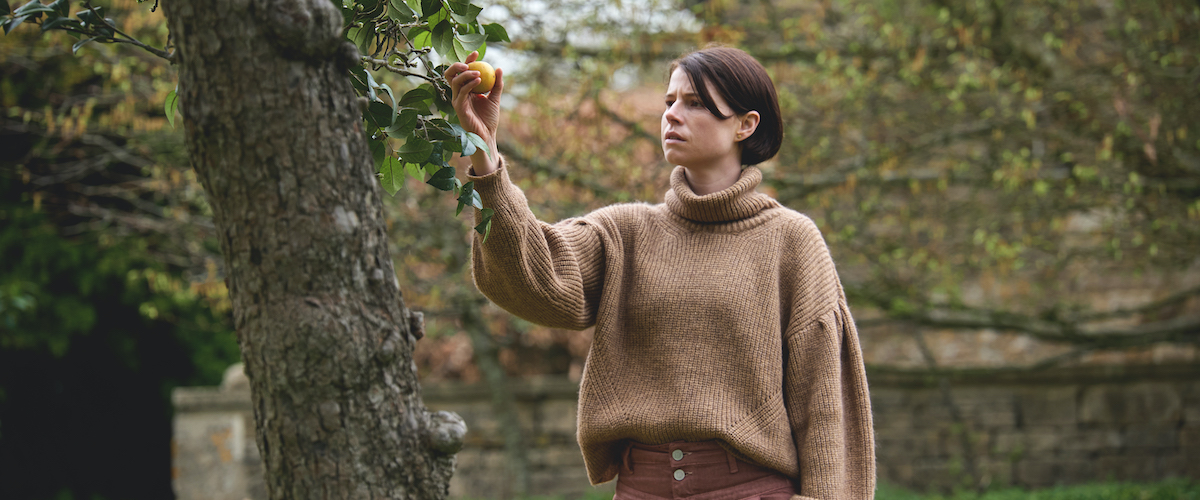
Now streaming on:
There are moments in “Men” that will cause your breath to quicken and your heart to pound. Still others will leave you scratching your head and stifling laughter.
Whatever your reaction is to the latest meticulously made mind warp from writer/director Alex Garland, it won’t be indifference. This is a visceral experience, and it reinforces Garland’s singular prowess as a craftsman of indelible visuals and gripping mood. As in his previous films, “Ex Machina” and “Annihilation,” he establishes a feeling of dread early and holds you in it, unyielding, for much of the film’s duration. The methodical pacing, eerie cinematography, startling sound design, and vivid visual effects all work in synergy to create an almost merciless tension. But then we reach his wild, muscular climax—and that’s where things ultimately fall apart.
“Men” is at its mightiest as a haunting exploration of grief, as it trudges an arduous road toward healing. The English countryside where our heroine seeks refuge after a horrifying loss looks peaceful and inviting. The lush woods are quiet and cool, as they so often are in Garland’s films—until they aren’t. The stately manor she’s rented offers far more space than she needs—until she has nowhere to hide. Jessie Buckley navigates the many perils that await her character, Harper, with an unease that eventually rises to terror. Her feelings are all there on the surface, and she’s dragging us along with her as she fights for her sanity as well as her safety. There’s an honesty and immediacy to her performance—to her screen presence in general—that keep us hanging on even as “Men” becomes increasingly unfocused.
Harper has escaped to this idyllic village after experiencing a profound tragedy, which we witness in mesmerizing slow motion under orangey, stormy skies at the film’s start. But although she’s driven four hours outside her home in London, it doesn’t take long for her to discover that she’s placed herself at the center of a different kind of trauma. There’s something wrong with this place, with these people, who all happen to be ... men. One particular man, to be more precise, in a variety of forms. He’s the caretaker, the vicar, the bartender, the policeman and—in his most disturbing forms—the naked stalker and the surly teenager. (The facial CGI on that kid seems to be intentionally imperfect to make him even more off-putting than the rest.) He is Rory Kinnear, longtime character actor showing off his impressive versatility in a wide array of roles. Hair and makeup effects allow him to assume each new character distinctly, but he always maintains an unmistakably menacing air. Because no matter who this guy is, he lets her down—or worse—over and over again. Whether it’s a dismissal or a sexist insult, a passive-aggressive remark or a straight-up aggressive attack, he just keeps coming, each incarnation more dangerous than the last. How Harper deals with the onslaught becomes her own personal hell—and ours.
There’s a line we cross in “Men” where it becomes clear we’ve left reality entirely. For a while, it’s possible that Harper’s just paranoid, as in one quietly powerful scene in which she sends her voice echoing playfully down an empty tunnel, only to discover that perhaps it’s not empty after all. But in time, we’re in full-on hallucination zone, and dazzlingly so. “Men” buzzes and builds to a frenzy in ways that are reminiscent of Darren Aronofsky’s “mother!”, which divided audiences the way Garland’s film surely will. Working with his usual cinematographer, Rob Hardy, and composers, Geoff Barrow and Ben Salisbury, as well as editor Jake Roberts, Garland creates a symphony of controlled chaos.
And yet, while the film’s technical excellence is without question, the themes Garland is exploring are a bit hazier. What is he trying to say about the trials women must withstand within the patriarchy? He introduces biblical imagery early and often: Harper literally plucks an apple from a tree in the garden and takes a bite upon arrival at the manor. Is he suggesting that nothing has changed in 2,000-plus years of male-female relations? Later still, he inserts some ritualistic pagan imagery to hammer home that we are indeed watching old-school, ‘70s British folk horror, if nothing else. And how does all this relate to the film’s shocking, graphic, and downright bizarre conclusion, which keeps going and going to the extent that it inspires unintentional laughter? Bringing these ideas into sharper focus would have given them far more power. Instead, they meander and sprawl, remaining intriguing but tantalizingly out of reach.
Still, this is the stuff of nightmares, and Garland shows you things here that you’ll never be able to unsee—but you will enjoy discussing them afterward with a friend over coffee or a drink. The lobbies of arthouse theaters worldwide are sure to be full of people wandering from their auditoriums in a daze, wondering what they just witnessed and wishing desperately to make sense of it. So maybe “Men” are good for something after all: They might just save cinema.
Now playing only in theaters.
Christy Lemire is a longtime film critic who has written for RogerEbert.com since 2013. Before that, she was the film critic for The Associated Press for nearly 15 years and co-hosted the public television series "Ebert Presents At the Movies" opposite Ignatiy Vishnevetsky, with Roger Ebert serving as managing editor. Read her answers to our Movie Love Questionnaire here.
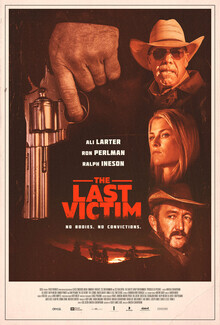
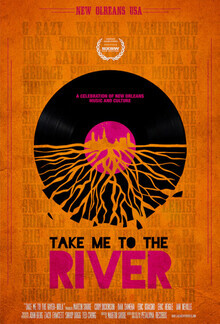
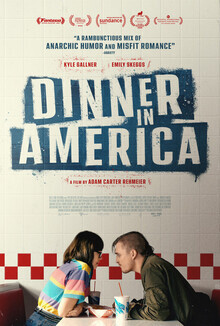
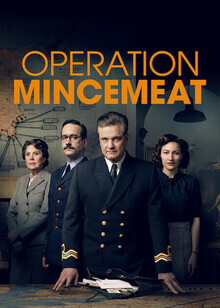
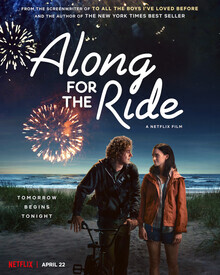
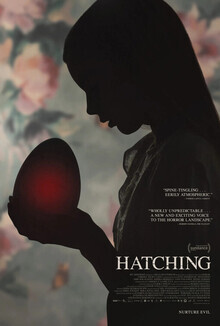
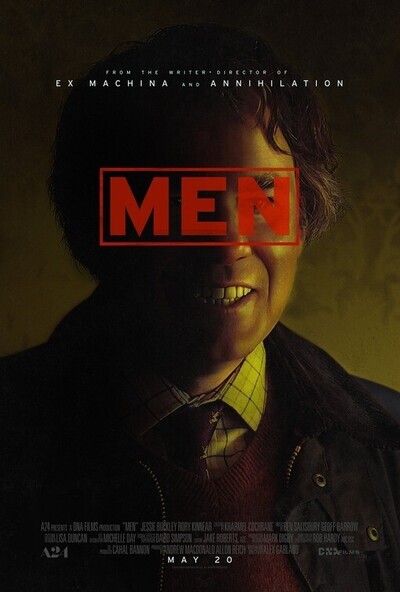
100 minutes
Jessie Buckley as Harper
Rory Kinnear as Geoffrey
Paapa Essiedu as James
Gayle Rankin as Riley